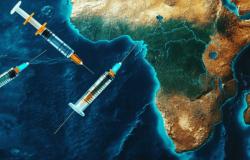The repeal of Joe Biden’s order on artificial intelligence by Donald Trump opens a new chapter in the regulation of this technology, with important implications on a global scale and for Morocco. By favoring a more flexible approach, the United States seeks to accelerate its competitiveness against China and attract more investment, but the decision raises concerns about security, transparency and ethics. For Morocco, this situation represents both an opportunity and a challenge. On the one hand, it could promote the emergence of the country as a regional technological hub, attracting companies wishing to benefit from an environment favorable to innovation. On the other hand, it requires having a solid regulatory framework to protect the Moroccan citizen and defend the interests of Morocco as well as its culture in the face of the massive importation of foreign AI solutions.
The challenge of Morocco’s digital sovereignty
In a context where the great powers are redefining their artificial intelligence policies according to economic and strategic priorities, the question of digital sovereignty is becoming crucial for Morocco. Digital sovereignty is based on the country’s ability to control and master the technological infrastructure, data and digital services used on its territory. This involves the development of local solutions adapted to national needs, the protection of citizens’ personal data, and the establishment of effective regulation that ensures a balance between innovation and security.
One of the main challenges lies in the dependence on foreign technologies. American deregulation could encourage the massive implementation of AI solutions developed in the United States, often poorly adapted to local realities, which could create situations of critical dependence, particularly in sensitive sectors such as health, finance or public security. Morocco must therefore put in place a protective regulatory framework to guarantee technological independence and the sovereignty of its data.
-Furthermore, digital sovereignty is essential to defend Morocco’s interests economically and culturally. AI technologies developed abroad do not always take into account Moroccan cultural specificities, thus risking diluting or marginalizing fundamental aspects of the national heritage. A well-defined regulatory framework would preserve and promote Moroccan cultural values while facilitating the integration of digital technologies in sectors such as crafts and intangible heritage.
Finally, digital sovereignty cannot be achieved without a clear cybersecurity policy. Too lax regulation on a global scale could expose Morocco to cyberattacks or the exploitation of its critical infrastructure by foreign powers. The establishment of strict standards and control mechanisms will make it possible to better secure data and protect citizens against the potential abuses of artificial intelligence.
To guarantee this sovereignty, Morocco will have to adopt a proactive strategy in terms of research and development, regulation and international collaboration. It is imperative that artificial intelligence be a tool serving national socio-economic development, while being respectful of the cultural specificities and aspirations of the Moroccan people.






